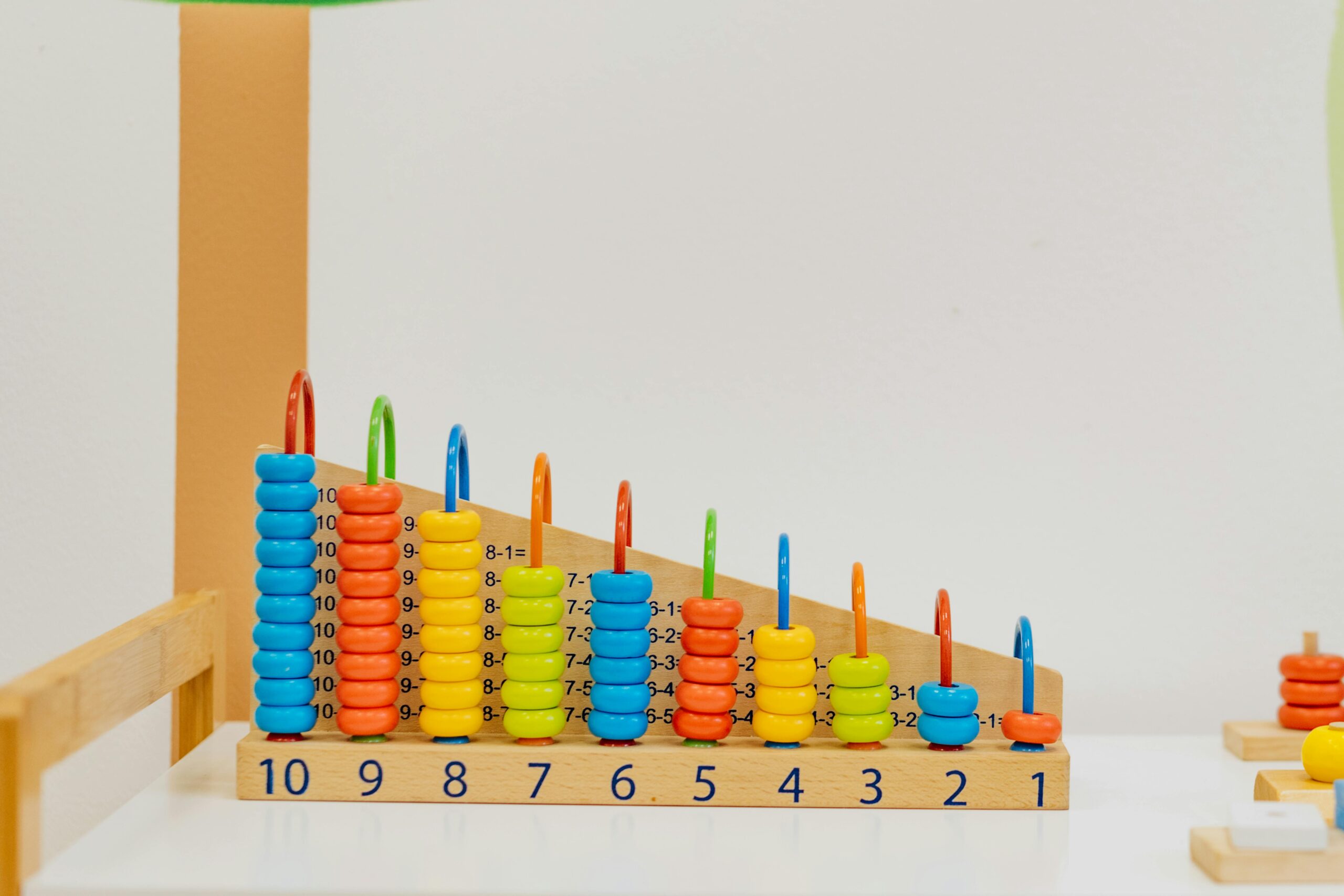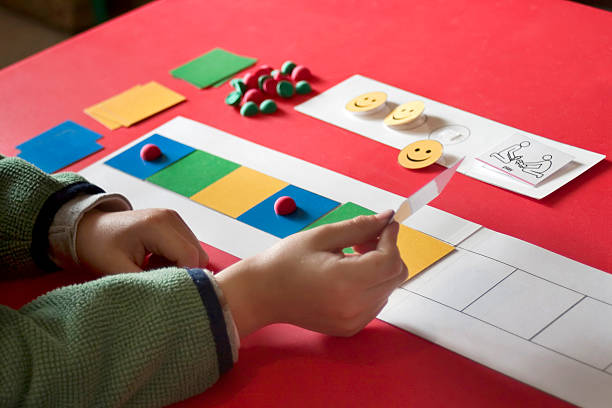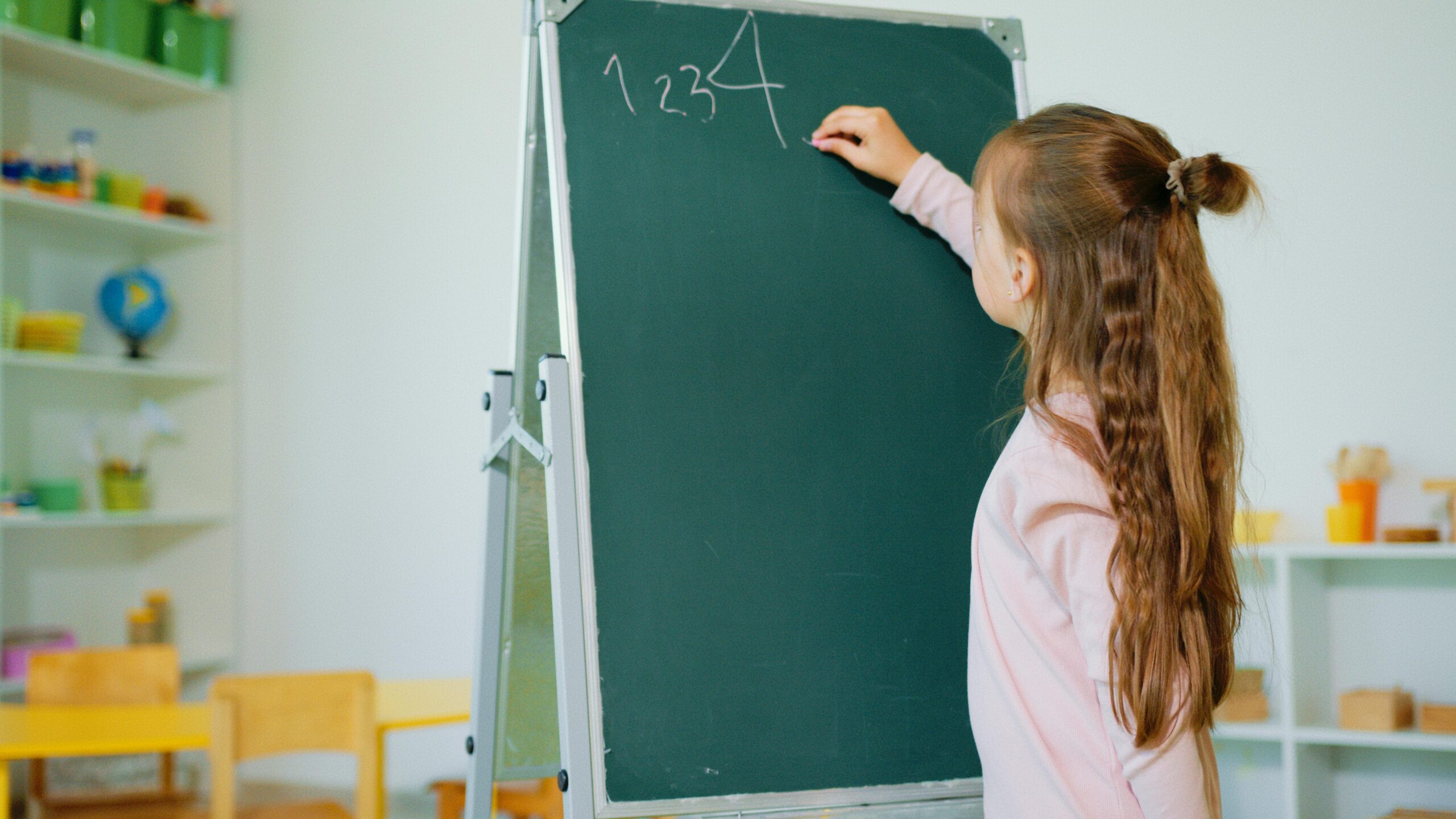Dyscalculia is a specific learning disability that affects a person’s understanding of numbers. Specialists estimate that 5-10% of school-aged children have this condition, and 25% of students who struggle with maths could be considered dyscalculic. Dyscalculia is typified by poor number sense and difficulty working with maths, though a dyscalculic student may not struggle with other subjects. Of course, all learners struggle with maths at some point. Still, children who have dyscalculia are often confused by numbers, finding it difficult to do more than essential addition and subtraction. They may require extra support to maintain pace at school.
Dyscalculia is considered a special educational need (SEN), and is therefore supported within schools according to UK law. At Sunbeam Education, we support dyscalculic students via Maths tutoring and SEN tutoring. In this article we will take a look at ways in which you can help a student with dyscalculia thrive.

What are the challenges associated with Dyscalculia?
People with dyscalculia have persistent problems with maths and tend to have difficulty memorising numerical facts such as phone numbers or birthdays because they don’t readily see patterns in information (such as remembering that 1-2-3 is the same as 2-1-3). They may also need help performing simple calculations (such as multiplying 5 x 7) without paper and a pencil in front of them. These limitations mean students may learn maths formulaically rather than understand the problems.
Dyscalculia can be mitigated with practice and support from teachers and parents. However, these issues with maths regularly result in high levels of maths anxiety, so patience and care are required when working through them. Here are five strategies you can use to help your child with dyscalculia succeed at school:
Make Maths Work Fun and Engaging:
Consider playing number games with dyscalculic children to make learning maths more engaging for them instead of relying solely on worksheets. Present maths as a fun challenge to be solved, rather than a dull concept to be memorised. If you are going to be using worksheets, it can be helpful to highlight actual numbers in the instructions and throughout the problems. Additionally, allowing children to use different coloured pencils while completing worksheets can aid in organising their work and encourage a sense of play and ownership over it, which can be very empowering.
Take Things Slowly and Build a Foundation in Maths:
Parents can help their children with maths work by encouraging them to speak aloud while working through problems or new concepts. Though dyscalculic children struggle with maths, they may have strong language skills that could make the process easier. It’s also beneficial for children to learn multiple synonyms for various mathematical terms. For instance, when discussing addition, they can use words like “increase” and “extra.” Additionally, explaining basic terms to your child and letting them express their understanding of each definition in their own words is essential. Encourage your child to write their own ‘Maths Dictionary’ with the definitions they’ve come up with. This will help consolidate their learning and provide a handy reference point to return to when dealing with mathematical language.
Use Analogies and Exemplar Models:
One way to teach maths beyond using manipulatives is by creating visual models. This can involve moving around large objects in a room or drawing pictures to better explain maths problems. Don’t be afraid to get playful with your choices! Get creative - use simple household items like colourful socks or pairs of shoes for addition and subtraction lessons. Additional accommodations include circling keywords in sentences or providing extra paper to solve problems.
Play Maths-Based Board Games:
Playing games like Dominoes, Lego, or Monopoly can aid children in comprehending basic maths concepts. Instead of counting each individual dot, children should learn to recognise number patterns on dominoes, Lego bricks, or dice. Older students can enhance their skills by playing games that involve money and point scoring. Let your child get comfortable with dominoes and dice on their own. Then, introduce them to a game they enjoy and incorporate these objects. Playing board games together is an excellent way to keep up with maths skills during school holidays - they’re educational but don’t feel like work!

Focus on Developing Understanding:
Breaking maths into smaller steps can make it more manageable, but it’s important to keep sight of the bigger picture. Real understanding comes when a child moves beyond memorising facts, such as times tables, and begins to see how ideas connect. Encourage your child to think through problems and explain their reasoning rather than rely on repetition. Every learner is different, so it may take some trial and error to find approaches that work best. Recognising your child’s challenges and celebrating each success as they learn helps build confidence and lasting progress.
Ask For Accommodations at School:
Speaking with your child’s teacher about potential accommodations at school, such as extra time for tests or access to a maths resource room, is essential. Your dyscalculic child might be permitted to use a calculator for daily maths problems.
Consider Tutoring:
A maths tutor with specialist dyscalculia knowledge can help your child develop mathematical skills and strategies for tackling complex maths problems in a calm environment away from the stresses of the classroom. Here at Sunbeam Education, the maths tutors create a positive, strengths-focused environment where students can develop confidence in their abilities.





